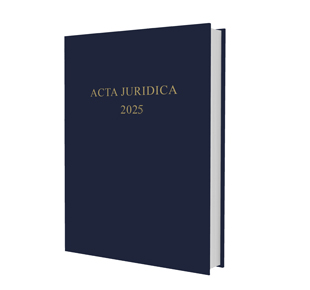Enforcing living wills in South Africa

ARTICLE
Enforcing living wills in South Africa
Authors: Elsje Bonthuys & Anton van Dalsen
ISSN: 1996-2177
Affiliations: Professor of Law, University of the Witwatersrand, Johannesburg; BA (Pretoria) LLB (Stellenbosch)
Source: South African Law Journal, Volume 143 Issue 1, p. 68-92
https://doi.org/10.47348/SALJ/v143/i1a5
Abstract
This article examines some theoretical and practical issues concerning the implementation of living wills, also known as advance directives, on the assumption that legislation on the general issue of physician-assisted dying in South Africa is unlikely to be enacted soon. Pending the adoption of legislation, living wills provide an avenue for people to exercise meaningful choices about medical treatment near the end of life. Yet, medical practitioners and even courts often overlook the existence of living wills, despite the requirement of informed consent for any medical treatment. Four main factors impede the enforcement of these documents: first, the argument that the appointment of a person as a proxy decision-maker lapses when the maker of the living will becomes incompetent to express their views; secondly, ambiguity and contradictions in the law relating to assisted dying which are exacerbated by the medical professional guidelines; thirdly, the focus on criminal liability in the case law impedes the full development of the jurisprudence on this topic; and, fourthly, the practical difficulties in making the existence of living wills known to medical personnel at the time when they should be implemented. The article concludes by suggesting some ways to overcome these difficulties.
